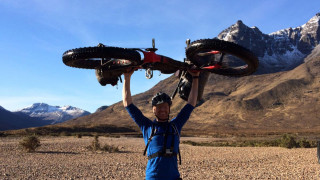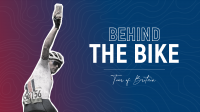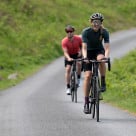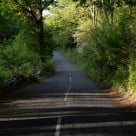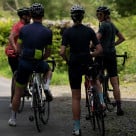In his latest blog for British Cycling, Paralympic champion Steve Bate heads north of the border for a wild adventure thanks to the Scottish Outdoor Access Code.
The north of Scotland will always hold a small piece of my heart. In another life I travelled through the Highlands, with a climbing rope in my rucksack, in search of some of mountaineering’s most prized possessions. From the famous Munros to soaring rock faces, Scotland is an adventurer’s playground.
In late March this year, my friend Ibrahim and I embarked on a five-day bike packing voyage through some of the wild places most precious to me. Leaving Contin just north of Inverness, with bike bags loaded, we travelled off-road via farm tracks, forestry roads, and mountainous foot paths.
After the first day’s riding, we had only seen three people in six hours, and this theme continued throughout the journey. March weather can be unpredictable in this country but we were privileged to enjoy clear blue skies. We rolled into small Scottish towns to stock up on food and supplies. Quaint small towns with friendly locals, overwhelmed by the size of our tyres and our plans to ride over mountain ranges as far as the eye could see.
We chased each other down the rocky technical single track, crossed knee deep freezing rivers, swam in icy lochs, and shouldered our bikes up relentlessly steep mountain paths, stopping only to take in the breathtaking views. Our bikes monstered though the rough terrain, the fat tyres soaking up whatever the land could throw at us.
The evenings were spent in bivi bags or remote bothies (unused old mountain huts), free for anyone in need of shelter. These are scattered all over the Highlands, and a treat for travellers looking to get out of the weather. You come across other like-minded hill folk, and share tales of your day over a roaring fire, before kipping down on the timber bunks.
We carried our bikes up the side of the Falls of Glomach (one of the highest in the country at 113 metres), on narrow slippery goat tracks. Pushing our bikes through peat hags seemed a luxury after this, sinking to the brim of our boots before we leapt to the next sinking footprint, laughing at each other as we gambled in our route of choice.
The weather held for the first four days, before we woke high in the Glen Affric Mountains. The visibility was down to 20 metres, which can only be described as pea soup. We were soon back on the stony single track which then turned into land rover tracks and forestry tracks, a sure sign our adventure was coming to an end as we arrived back at our starting point and civilisation.
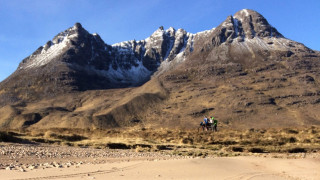
Bike packing is a great way to see the countryside. I’ve walked many of the hills and glens that we rode through, but to link them all as we did would take twice the time. It always amazes me, how we can find such great adventures in our own back yard. This is likely to be my last adventure of the summer as my focus now turns back to the racing season and my search for the rainbow jersey which has always eluded me.
None of this trip would have been possible without the Scottish Outdoor Access Code that was passed in 2003. Scotland provides great opportunities to enjoy the outdoors which just aren’t currently available in England and Wales and it’s all thanks to the access code, which ensures that everyone has statutory access rights to most of Scotland’s outdoors.
The code is based on three key principles: respect the interests of other people, care for the environment and take responsibility for your own actions. Pretty simple really. It allows people to get out in the countryside and exercise in an amazing environment which is great for people’s health and well-being but also has a huge impact on the local economy.
Scotland has done it and the evidence is clear, it works. It’s about time England and Wales catch up.

